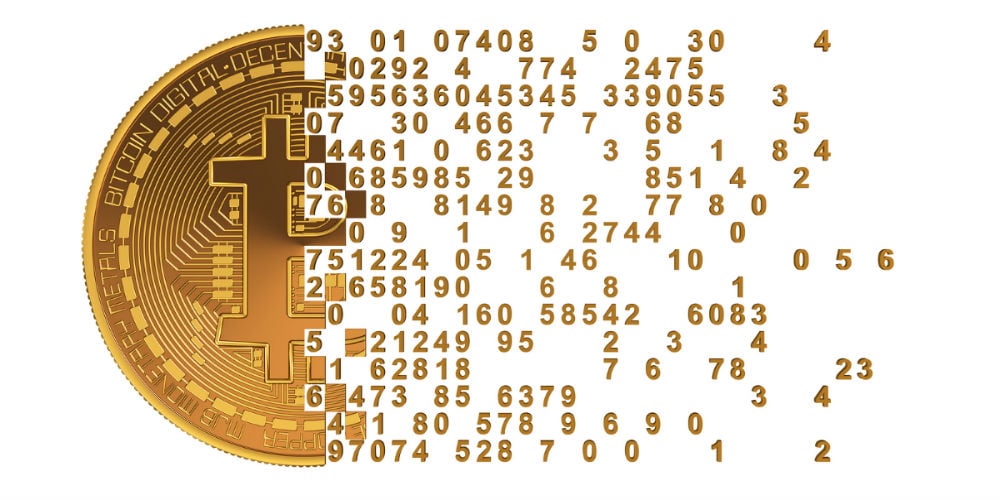It was election night, 2016. The evening hours were long gone, and most news network anchors appeared as if they were staring into an inevitable and unanticipated cloud of chaos. The results were rolling in, and it seemed increasingly likely Donald Trump would be the 45th President of these United States. Like most Americans, I was clinging to a glass (or a few) of my favorite spirit (bourbon) to take the edge off the national anxiety (or anticipation) which had come to an impressive boiling point in recent weeks and finally culminated in the late hours of November 8th, 2016. Bourbon in one hand, smartphone in the other, I did the best thing my analytical mind could reason to do in those exciting hours: I bought a bunch of Bitcoin (and other cryptocurrencies).
The next morning, I had to explain to my wife what I had done in my spirited moment of inspiration and intuition (damned real-time transaction alerts!). My answer: I bet on distrust; I gambled on disruption; I wagered on American anxiety. The bet paid off. The rest is history (at least the first chapter of a new history, anyhow). In the following year, Bitcoin (and most other cryptos) exploded. At its height, in December 2017, Bitcoin (the gold-standard of the crypto coins) had increased over 2800% (no, that’s not a typo). Even at the time of writing this piece, my election night gamble is still paying out at about 1000% (despite the fact cryptos are being pronounced dead and irrelevant on a daily basis!). Not even this Trumped-up Wall Street that is fueled by unprecedented amounts of near-free money can touch that.
So, what inside info did I have, and what does this have to do with credit unions?
I had zero inside info. I had only bourbon, and an acute appreciation for human nature (complimented by a career in community financial institutions and an insatiable philosophical curiosity). Oh, I also had a foundational understanding of the core technical and philosophical premise of blockchain (the technology undergirding Bitcoin). I knew that Bitcoin and blockchain need one thing to thrive: distrust. The relevance factor surrounding Bitcoin and blockchain is their ability to enable and support transactions and exchange of value between distrusted and anonymous parties. Blockchain and the cryptocurrencies they support are relevant to modern, digitally-minded consumers because they make the convenience of digital transactions possible without financial institution or government currency issuer interference.
This is where credit unions enter this story. As we all (hopefully!) know, credit unions are historical epicenters of community trust; they occupy a privileged position as entrusted guardians of centralized storage and transacting of community wealth and assets (or, at least we’re supposed to). It’s precisely this historical position as centralized stewards which brings into question the relevance of today’s credit unions in the face of technological innovations aimed at democratizing (decentralizing) financial transactions and currency storage/conveyance. Is your credit union strengthening and preparing its core technology assets in anticipation of this looming relevance crisis? Or, are you simply continuing to bolt on disjointed platforms (perhaps even attempting to bolt-on blockchain technology!) to dated host environments and fragmented operational data sets? Can your credit union deliver spendable digital currency directly to your member’s phone, or empower your local businesses to engage with your members a more modern, secure fashion, mobile/digital fashion? Could your credit union stand up a digital channel to allow members to apply for loans, obtain digital loan dollars on their phone, and spend those dollars with local merchants? If you’re not investing in the right core technology and shifting your thinking around how to use that core technology, then the answer is likely “No.”
Much like election night, 2016, I remain an analytical and intuitive wager-oriented technologist. Looking ahead, I’d place another bet on disruption and distrust. Millennials continue to struggle to accrue capital (savings) and are increasingly saturated with historically unprecedented amounts of debt, while putting off (or foregoing altogether) critical life events which tend to fuel economic growth and stability (buying homes, having children, starting businesses, etc.). Meanwhile, boomers are facing their own daunting retirement and economic hurdles. Political unrest looms as midterm elections approach and the prefabricated walls of investigation and legal proceedings close in on our 45th President. The list goes on …
Though I don’t have a bourbon in hand as I write this, I’m inclined to ponder what might be the successful mid-disruption “Bitcoin gamble” for credit unions in coming years. What investment could credit unions make amidst disruption to net notable gains? I’d put my money on relevant core (“host”) processing; not on the shiny distractions of the day (if only because a truly modern and relevant core will ultimately always be able to process transactions and store value more efficiently, securely, and cost effectively than dispersed blockchain databases). I’d also bet on credit unions needing to consolidate vendors/platforms and offer more modern digital services delivered as true extensions of their core operations as a means of realizing operational and economic efficiency (rather than perpetuating tired models of shabby bolt-ons creating broken, incomplete data sets in an era driven by intelligent and efficient use of centralized data). I’m no longer buying Bitcoin under the influence of bourbon; but, I am working with the DaLand CUSO team to create solutions to tokenize core transactions for modern, secure, internet transaction experiences, while crafting creative ways to extend the capabilities of relevant cores beyond the teller line.
Meanwhile, many financial institutions (credit unions included) have demonstrated a devoted fascination with the (alleged) cure-all potential of blockchain technology. I’m motivated by this peculiar fascination of the moment; specifically, the fact credit unions and other centralized financial institutions remain fixated on funding and exploring ways to further the development of a technology designed to displace centralized storage of value or borrowing of funds from a trusted party. I’m disappointed by the manic myopia around displacing ourselves from the privileged position as trusted transactors. I’m concerned by these precarious ‘solutions’ being peddled by so-called technologists, supposed consultants, and industry ‘innovators,’ aggressively and eagerly working to transform credit unions into something altogether incompatible with their origins as institutions chartered on the premise of shared interest and common community economic concerns.
The widespread adoption of blockchain technology unequivocally means the transformation of our technological and financial world into one where distrust, anonymity, and decentralized/dispersed authorities dictate the transactional and banking norms to come. Imagine a world where distrust and decentralized/dispersed data is the basic building block for all financial products and services. Sound like a world where your credit union will thrive?
In the spirit of avoiding confusion, and in an attempt to avoid angering the numerous blockchain trolls collecting (handsome) fees to allow credit unions and financial institutions to cross the bridge into the promised future utopias, I want to state the following: blockchain most certainly has a purpose and has valid applications and uses.
Alternative, non-governmentally issued or regulated currencies are the prime example. Another great use case is international payments and funds transfer (outside the current, costly, slow bank-based system). A third authentic innovation would be a true digital cash, tradeable and transactable without centralized authorities or agencies controlling (or even having knowledge of) every transaction.
Credit unions will almost certainly spend many more years and untold additional millions of dollars attempting to unlock the panacea of alternative payments and internet transaction protocols. I don’t disagree with the pursuit of this goal. Most of our technology within credit unions is terribly, woefully outdated and irrelevant in comparison to industries outside our privileged and protected niche. This is precisely why we should contemplate the precarious nature of playing with technologies genetically and historically incompatible with the niche we occupy; especially because this niche brings unparalleled value and purpose to so many communities, families, businesses, and individual lives across our nation and the world.
Blockchain, Bitcoin, and bank-backed alt-chains and cryptocurrencies aren’t going anywhere (Mr. Robot is probably unnervingly close to the mark on this front). Panic and distrust will only increase the market cap of these players, again. Credit unions could very easily be carried away by another wave of economic uncertainty and imposed government regulations and ‘efficiencies.’
Blockchain doesn’t increase the amount of data you have readily available to efficiently mine, analyze, and use in a centralized location to improve your members’ lives and cement your position as the hub of a local economy. It doesn’t add to the density of your data as a modern financial institution concerned with delivering fast and affordable products and services over various digital channels. It doesn’t reduce transaction costs. It won’t solve for data-hungry regulations and mandates like CECL. It doesn’t promote centralization and protection of your members’ data; nor is it compatible with mandates to know your member or maintain a centralized, complete, composite understanding of individuals transacting with or borrowing from your institution. Finally, we haven’t even broached the topic of whether your local or federal regulator will comprehend or condone early escapades and investments into technologies of distrust and decentralization/dispersal of transactions and member data (once they figure out that’s what blockchain fundamentally is and does). This final observation is critical, especially considering eventual academic analyses of Bitcoin’s meteoric rise will likely unveil widespread market manipulations and flaws in the foundational technology (blockchain) made massive ‘pump and dump’ price jumps possible and exploitable.
Despite all the present challenges and shortcomings of blockchain technology and the cryptocurrencies it supports, DaLand CUSO believes blockchain, Bitcoin, and other variations of these emerging technologies will be part of your future world. However, that’s not a question which troubles the exceptional minds on our team. The only question of concern is whether your local universe will be held together by a strong enough core to remain relevant in the face of (or even use to your benefit!) the effects of these emerging forces. The answer to that question is something I and the DaLand CUSO team are already addressing as a means of ensuring strong credit unions remain real financial gravitational forces and epicenters of community commerce and trust.







